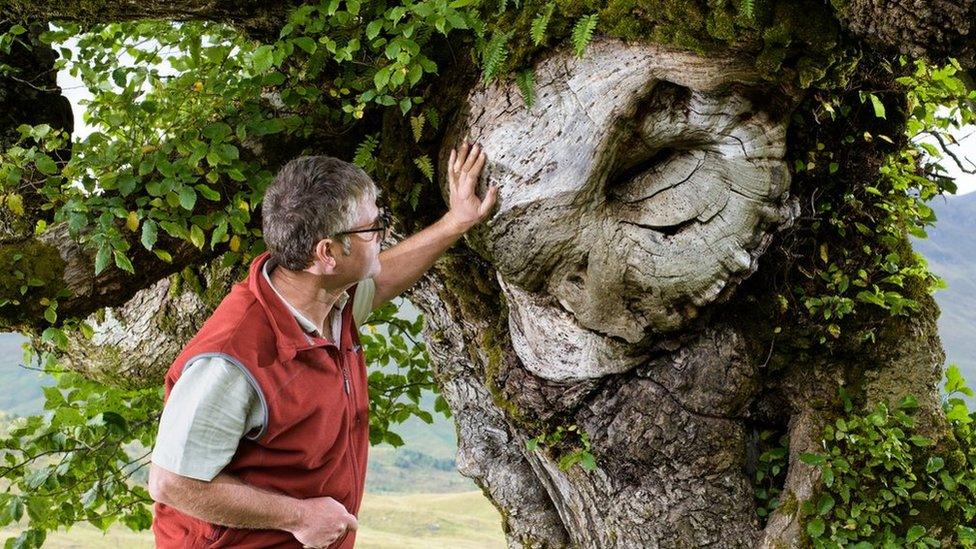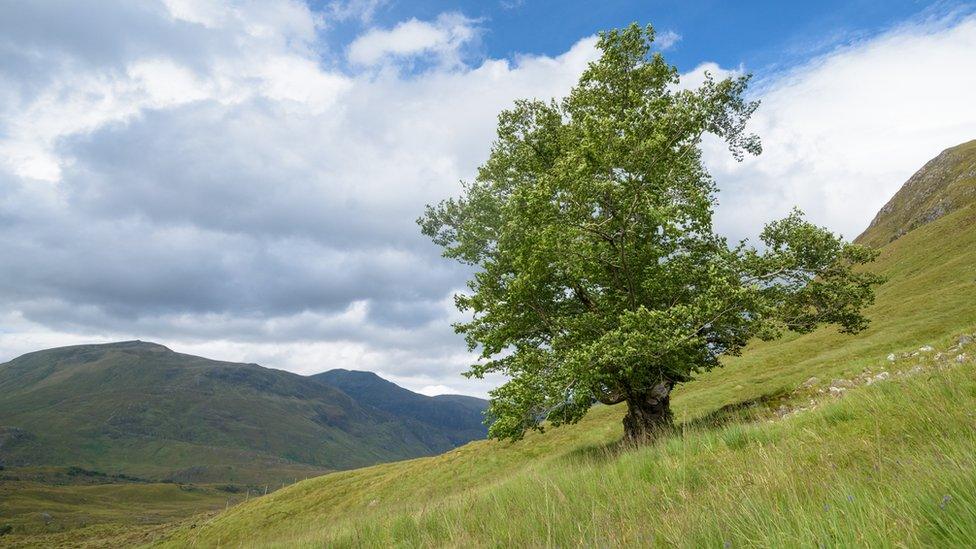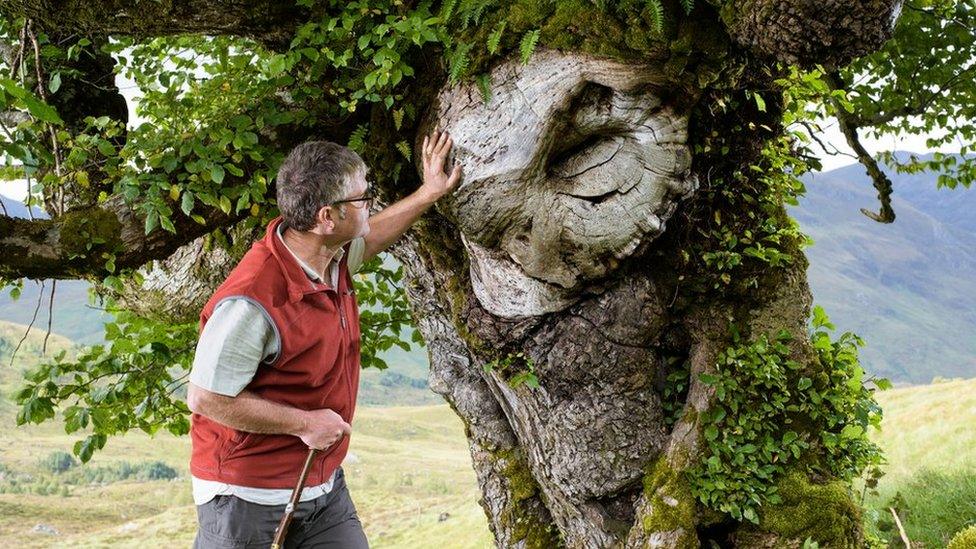Glen's lone tree becomes 'face' of elm disease campaign
- Published

The elm is is named after creatures in JRR Tolkien's Lord of the Rings stories
A tree known as the Last Ent of Affric is the "symbolic leader" of a campaign aiming to halt Dutch elm disease.
The elm stands alone in Glen Affric, south of Inverness, and its location is credited with protecting it from the beetle that spreads the disease.
Recently named Scotland's tree of the year, it has a face-like shape on its trunk and is named after creatures in JRR Tolkien's Lord of the Rings.
It has now been adopted for the ElmWatch campaign.
The campaign's organisers hope to raise awareness about Dutch elm disease and the measures people can take to help stop it spreading to disease-free areas.
Alasdair Firth, of Woodland Trust Scotland, said: "Dutch elm disease has swept round the north-east of Scotland to Inverness and is now making its way along the Great Glen towards the west coast.
"There are healthy elm populations on the west coast now under threat.
"The ElmWatch campaign launched today aims to stop the spread of the disease and carry out research to secure the future of the species."

The Last Ent of Affric stands alone in a Highlands glen
Dr Euan Bowditch, of the Wooded Landscapes Research Group at Inverness College UHI, said diseased firewood is one way the infection can be spread.
"The beetles are hitchhiking their way across the Highlands, most likely through the transport of diseased wood that will infect and kill more trees," he said.
"If we can limit the movement of infected elm wood, we can give healthy elm populations, such as those in the west, a shot at survival."
Public agency Scottish Forestry is urging the public to avoid moving elm timber and firewood.
John Risby, of Scottish Forestry, said: "Major infection has spread around the Moray Firth in the last four years.
"The beetle cannot fly far and would be unlikely to make it to the west coast unaided."
- Published23 October 2019
